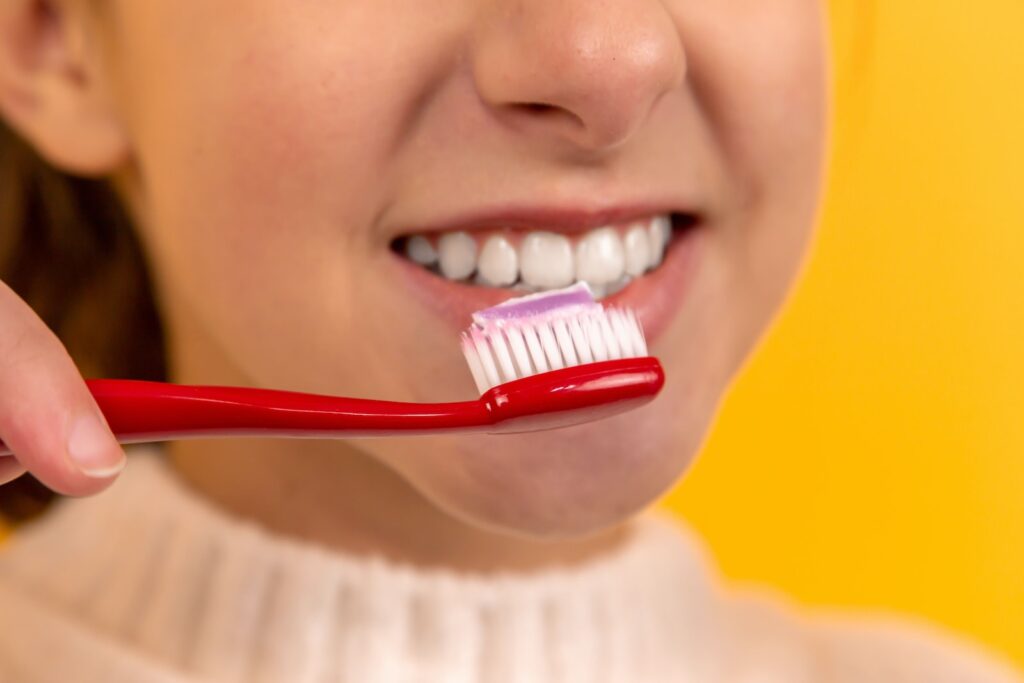Introduction
Taking excellent care of your teeth is not just about having a winning smile; it’s about ensuring your oral health for a lifetime. Whether you’ve been blessed with naturally great teeth or not, consistent and proper dental care is crucial to avoid complications. In this comprehensive guide, we will explore the best practices to maintain your dental health and keep those pearly whites shining.
Brush Before Bedtime
One of the most fundamental yet often overlooked aspects of oral care is brushing your teeth before bedtime. While it’s common knowledge that brushing at least twice a day is recommended, many still neglect the importance of nighttime brushing. Cleaning your teeth before sleep removes accumulated bacteria and plaque, preventing potential issues down the road.
Brush Thoroughly
Not only is brushing frequency important, but the technique also matters. Inadequate brushing is nearly as harmful as not brushing at all. To effectively remove plaque, take your time and use gentle, circular motions when brushing. Plaque left unattended can harden, leading to issues like calculus and early gum disease, known as gingivitis.
Don’t Forget Your Tongue
Plaque can also build up on your tongue, potentially causing bad breath and other oral health problems. Make it a habit to gently clean your tongue every time you brush your teeth.

Choose Fluoride Toothpaste
When selecting toothpaste, look beyond whitening power and flavors. Ensure your chosen toothpaste contains fluoride. While there may be concerns about fluoride’s effects on overall health, it remains a crucial element in dental care. Fluoride is a potent anti-cavity agent, combating the microorganisms responsible for decay and serving as a protective shield for your teeth.
Don’t Rinse Immediately
After brushing, don’t rinse out the fluoride toothpaste right away. Let it sit on your teeth for at least two minutes before rinsing your mouth to allow the fluoride to work its magic.
Flossing Is Essential
Many people diligently brush their teeth but neglect to floss. Flossing is not just about removing food particles; it stimulates the gums, reduces plaque, and helps minimize inflammation, as noted by Jonathan Schwartz, DDS.
Flossing once a day is generally sufficient to reap these benefits. If you encounter difficulties with traditional flossing, explore alternative tools like pre-packaged dental flossers, readily available at drugstores.
Incorporate Mouthwash
Mouthwash may seem optional, but it can contribute significantly to your oral health. According to Dr. Schwartz, mouthwash serves three primary purposes: neutralizing mouth acid, cleaning hard-to-reach areas around the gums, and remineralizing the teeth. It acts as a supplemental tool to restore balance in your oral environment, making it particularly useful for children and the elderly.
Consult your dentist for specific mouthwash recommendations, as certain products cater to children and individuals with sensitive teeth. There are also prescription mouthwashes available for specialized needs.

Stay Hydrated for Strong Teeth
Water remains the healthiest beverage for your overall health, including your oral well-being. Dr. Schwartz recommends drinking water after each meal. This helps counteract the harmful effects of sticky and acidic foods and beverages between brushing sessions.
Embrace Crunchy Fruits and Vegetables
While ready-to-eat foods are convenient, they may not be the best choice for your teeth. Fresh, crisp vegetables not only contain more fiber but also promote dental health. Dr. Schwartz advises introducing harder-to-chew foods to children early, avoiding overly processed options, and encouraging them to use their jaws.
Limit Sugary and Acidic Foods
Sugar can transform into acid in your mouth, damaging tooth enamel and causing cavities. Acidic fruits, beverages, and coffee can also erode dental enamel. While complete avoidance isn’t necessary, it’s wise to be mindful of these foods and drinks.
Regular Dental Checkups
Even with excellent daily dental care, regular visits to the dentist are essential. Biannual appointments for cleanings and checkups are recommended for everyone. Dentists can remove calculus, check for cavities, and identify potential issues, offering treatment options as needed.
Some dental insurance plans cover more frequent dental visits, so take advantage of this if applicable, especially if you have a history of dental problems like gingivitis or cavities. Prioritizing your oral health now can save you from more extensive and costly treatments down the line.
In conclusion, maintaining healthy teeth requires consistent care and attention to detail. By following these guidelines, you can preserve your smile and ensure a lifetime of excellent dental health. Remember, a beautiful smile is just one of the many benefits of a healthy mouth.
Frequently Asked Questions (FAQ) – Dental Health
1. Why is dental health important? Dental health is crucial because it directly impacts your overall well-being. Healthy teeth and gums not only contribute to a confident smile but also affect your ability to eat, speak, and maintain good nutrition.
2. How often should I brush my teeth? Brush your teeth at least twice a day, ideally in the morning and before bedtime. This helps remove plaque and food particles, preventing dental issues.
3. What’s the proper way to brush my teeth? Use a soft-bristle toothbrush and gentle, circular motions. Ensure you brush for at least two minutes, covering all tooth surfaces and your tongue.
4. Why is fluoride toothpaste recommended? Fluoride is an essential ingredient in toothpaste as it helps prevent cavities by fighting decay-causing bacteria and strengthening tooth enamel.
5. Should I rinse my mouth immediately after brushing with fluoride toothpaste? No, it’s best not to rinse immediately after brushing. Let the fluoride sit on your teeth for at least two minutes to maximize its effectiveness.
6. Is flossing really necessary? Yes, flossing is crucial. It helps remove food particles, stimulates gums, reduces plaque, and minimizes inflammation. Aim to floss at least once a day.
7. Are there alternatives to traditional floss for those with difficulties? Yes, pre-packaged dental flossers are available at most drugstores and can be easier to use, especially for children and individuals with limited dexterity.
8. How does mouthwash contribute to oral health? Mouthwash neutralizes mouth acid, cleans hard-to-reach areas, and remineralizes teeth. It serves as a supplementary tool to maintain oral balance.
9. What role does water play in oral health? Water is the healthiest beverage for your oral health. Drinking water after meals helps cleanse your mouth and mitigate the effects of acidic and sticky foods.
10. Can my diet affect my dental health? Yes, your diet significantly impacts your dental health. Limit sugary and acidic foods and embrace fresh, crunchy fruits and vegetables for healthier teeth.
11. How often should I visit the dentist? Most dentists recommend biannual checkups and cleanings. However, some individuals with specific needs may require more frequent visits.
12. Does dental insurance cover regular checkups? Many dental insurance plans cover regular checkups, and some may even offer additional visits. Check with your provider to understand your coverage.
13. What if I have dental issues like gingivitis or cavities? If you have dental problems, consult your dentist for a personalized treatment plan. Early intervention can prevent more extensive issues.
14. Can children follow these dental care guidelines? Yes, these guidelines apply to individuals of all ages, including children. Start teaching good oral hygiene habits from a young age.
15. What if I have sensitive teeth? If you have sensitive teeth, consult your dentist for toothpaste and mouthwash recommendations tailored to your needs.
Remember that maintaining good dental health is an ongoing process that requires consistent care, proper hygiene practices, and regular dental checkups.

